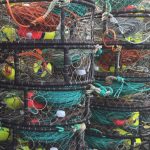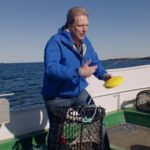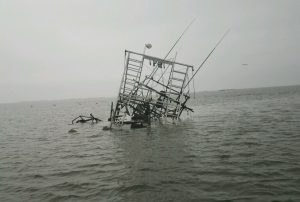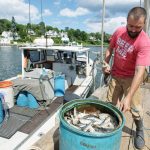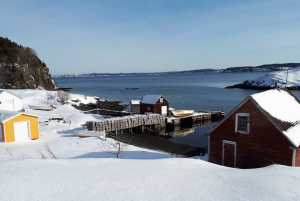Tag Archives: Owner Operator Policy
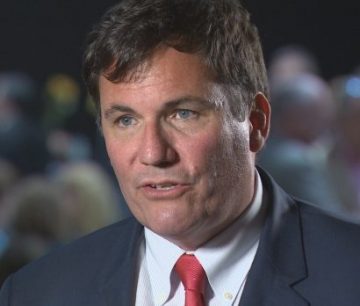
DFO minister: No compromise on independence of inshore fishery
Canada’s Minister of Fisheries and Oceans says there will be no backtracking on measures to preserve the independence of Atlantic Canada’s inshore fishery.”I’m not interested in weakening or diluting these policies,” Dominic LeBlanc told CBC News in a wide-ranging interview Tuesday. LeBlanc was responding for the first time to overtures from lobster buyers and plant owners in southwestern Nova Scotia who have floated schemes that would allow the companies ownership of a fisherman’s catch while somehow maintaining the independence of the fisherman.,,LeBlanc declined to discuss the impact on Atlantic Canada’s seafood exports to the United States in the event the Trump administration pulls out of the North American Free Trade Agreement. >click here to read<21:29 
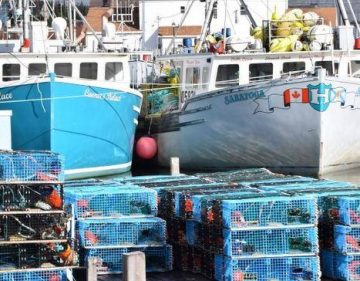
Commentary on Controling Agreements: DFO meddling destabilizes fishermen
I’ve held my own lobster licence since 1973 and it is nonsense to suggest I am anything but an “independent” fisherman. Yet the Department of Fisheries and Oceans is reviewing my licence under the “owner-operator policy.” Under this policy, the owner of a lobster licence is supposed to be independent (as I am) and to benefit most from his licence (as I do). DFO seems to suspect that I am in a so-called “controlling agreement” with Yarmouth Sea Products Ltd. click here to read the story 08:43
Controlling Agreement? Labrador fisherman Kirby Elson is ending his legal challenge filed with the Federal Court
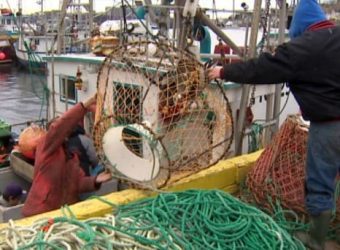 Nova Scotia fish harvester Susan Beaton is breathing a little easier now that a legal challenge that could have overturned the rules protecting the independence of Atlantic Canada’s inshore fishery appears to be over. “I think it’s very good news, at least for those of us who care about the owner-operator policy,” said Beaton, who is from Antigonish. The federal government’s owner-operator policy stipulates the main benefits of inshore fishing licences must go to the licence holders. Kirby Elson, a fisherman from Cartwright N.L., a small fishing town in Labrador, had launched a legal challenge, appealing a decision by the federal fisheries minister to take away his commercial fishing licences. But the case ended quietly and abruptly this week when Elson notified his lawyers Jan. 10 that he wanted to “immediately withdraw from this litigation,” according to documents filed with the Federal Court. Elson had refused to obey a DFO requirement that he exit a so-called “controlling agreement” with two Newfoundland and Labrador fish processors. Read the story here 19:31
Nova Scotia fish harvester Susan Beaton is breathing a little easier now that a legal challenge that could have overturned the rules protecting the independence of Atlantic Canada’s inshore fishery appears to be over. “I think it’s very good news, at least for those of us who care about the owner-operator policy,” said Beaton, who is from Antigonish. The federal government’s owner-operator policy stipulates the main benefits of inshore fishing licences must go to the licence holders. Kirby Elson, a fisherman from Cartwright N.L., a small fishing town in Labrador, had launched a legal challenge, appealing a decision by the federal fisheries minister to take away his commercial fishing licences. But the case ended quietly and abruptly this week when Elson notified his lawyers Jan. 10 that he wanted to “immediately withdraw from this litigation,” according to documents filed with the Federal Court. Elson had refused to obey a DFO requirement that he exit a so-called “controlling agreement” with two Newfoundland and Labrador fish processors. Read the story here 19:31
DFO cracking down on deals that flout rules to keep inshore fishery in local hands
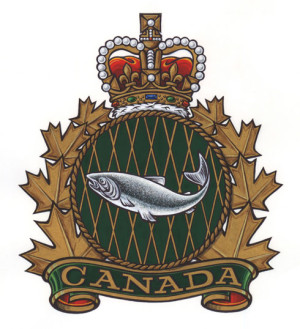 Two Maritime fishermen have lost their fishing licences following a Department of Fisheries and Oceans investigation into the use of so-called controlling agreements in the past year. They haven’t released the names or location of the fishermen. “We’ve concluded five cases. Of those cases, two were in agreements that were contrary to our policy,” said Morley Knight, DFO’s Maritimes regional manager. The department said other licence reviews are ongoing as it ramps up efforts to combat controlling agreements — the side deals where a fisherman hands control and use of a licence to a third party, usually a company. The agreements are seen as an end-run around policies to keep the inshore fishery in local hands, like the owner-operator policy that fishing licenses are held only by owner-operators, and fleet separation, which prevents companies from being both harvester and processor. Read the rest here 09:13
Two Maritime fishermen have lost their fishing licences following a Department of Fisheries and Oceans investigation into the use of so-called controlling agreements in the past year. They haven’t released the names or location of the fishermen. “We’ve concluded five cases. Of those cases, two were in agreements that were contrary to our policy,” said Morley Knight, DFO’s Maritimes regional manager. The department said other licence reviews are ongoing as it ramps up efforts to combat controlling agreements — the side deals where a fisherman hands control and use of a licence to a third party, usually a company. The agreements are seen as an end-run around policies to keep the inshore fishery in local hands, like the owner-operator policy that fishing licenses are held only by owner-operators, and fleet separation, which prevents companies from being both harvester and processor. Read the rest here 09:13
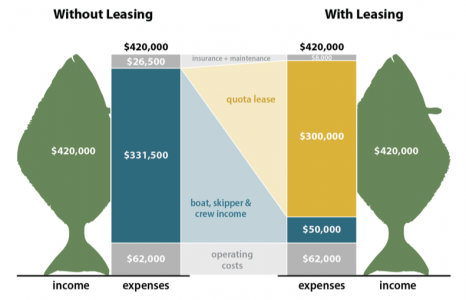
Owning the Owner Operator Policy
I read a blog post this week and the first paragraph rang so true to me: how most media stories would lead you to believe that the fishery is on its last legs and a dying industry when the opposite is in fact the case. What really caught my interest though was that there is a movement in the United States that if new fishing licences are issued, that they be to owner operators. At a time when Canada’s commitment to owner operator fisheries seems to be seriously in question, it’s interesting to see other countries advocating and moving in that direction. Owner operator fisheries means simply that the person who owns the boat and license is the one on the water fishing. While the official policy jargon in Canada will tell you that the Department of Fisheries and Oceans supports owner operator fisheries, the reality of policy decisions over the past two decades that I’ve been in the fishery have resulted in quite the opposite: management has moved towards individual transferable quotas (ITQ’s) which ultimately result in consolidation of access to the resource for a few (mainly) corporate interests who then hire people to fish. Read the story here. 10:16


































